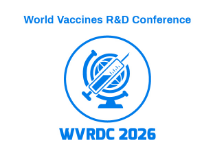Scientific Committee
.jpg.jpg)
Florian Schodel
Florian Schodel
- Designation: Founder of Philimmune LLC
- Country: USA
Biography
Florian Schödel graduated in medicine at the Technical University, Munich, and earned doctorates in Transplantation Immunology and Medical Microbiology (Dr. med. Dr. med. habil.) from the University of Munich (LMU). He holds an adjunct faculty appointments at the LMU and held one at the Biodesign Center of the ASU. Florian’s research at the Max-Planck Institute for Biochemistry, at Scripps, WRAIR and INSERM focused on hepatitis B structure and molecular biology and on novel recombinant vaccines against multiple infectious diseases.
Florian was a VP in Vaccines Clinical Research of Merck Research Laboratories. He has led the clinical teams responsible for several successful vaccine filings. He joined MRL in 1996, leading EU vaccine clinical trials and the clinical development of rotavirus, measles, mumps, varicella and rubella vaccines. As the clinical liaison to an EU joint venture (SP-MSD) he participated in the development of pediatric combination vaccines. He led clinical teams in vaccines and biologics and contributed to clinical and analytical research development.
In 2010, Florian founded Philimmune LLC, providing advice on pharmaceutical development with a focus on vaccines and biologicals. Current and past clients include GSK, Intercell, Ancora Pharmaceuticals, Variation Biologicals, Takeda International, Synthetic Genome Vaccine Institute, Gilead, Biogen, Amgen, Illiad Biotechnologis, Iaso Therapeutics, Menarini, Minervax, Sequoia, Merck & Co., Inc., VaxynEthic, Biological E, Moderna, Inc., Enumeral, X-Vax and Novadigm. Florian has also served as an advisor to PATH, the BMGF, the Sabin Institute, the WHO and the Biodesign Center at ASU.
Abstract
Vaccine development over the past decade has seen both extraordinary advances and significant challenges. On one hand, the advent of mRNA technology represents a breakthrough on par with the introduction of polysaccharide conjugates, providing a platform that enabled the rapid design, production, and deployment of highly efficacious vaccines during the SARS-CoV-2 pandemic. In a remarkable public–private effort, these vaccines were developed, authorized, and distributed in record time, preventing millions of deaths and setting a new standard for what is possible when science, regulation, and global collaboration align. This success ignited new interest in vaccine innovation, with development pipelines expanding across multiple infectious disease targets.
On the other hand, critical gaps persist. Some high-burden infectious diseases remain neglected, and sustaining funding for pandemic preparedness and vaccine discovery has proven difficult. In the past year, the United States has witnessed a sharp reversal: public funding was rescinded, regulatory frameworks were altered, and the basis for federal vaccine recommendations was weakened. These changes risk undermining progress, slowing preparedness, and eroding public trust in vaccines at a time when continued innovation is urgently needed.
This keynote will offer a personal perspective on navigating these competing forces. It will highlight the opportunities that emerging technologies, global partnerships, and regulatory collaboration offer, while also addressing the risks posed by policy shifts and funding gaps. The talk will explore how the global community can sustain momentum, close equity gaps, and ensure that future vaccine development continues to save lives worldwide.
I shall present a personal view of the progress and gaps in vaccine development during the recent decade. Medical needs, neglected targets and progress will be discussed as will the challenges of the changing landscape in funding, regulations and recommendations.
The last decade of vaccine development is marked by extremes. With the advent of arguably the most important vaccine platform since the development of polysaccharide conjugates – the use of mRNA – it became possible to quickly develop and deploy highly efficacious vaccines during the SARS-CoV-2 epidemic. Introduction of these vaccines in a vast public private effort saved over a million of lives worldwide. In the wake of this feat, vaccine development against multiple targets surged.
The last six months saw an almost complete reversal in the USA. Public funding for discovery and development as well as pandemic readiness was rescinded, the regulatory framework for vaccines was changed and the basis for federal vaccine recommendations was dismantled.

